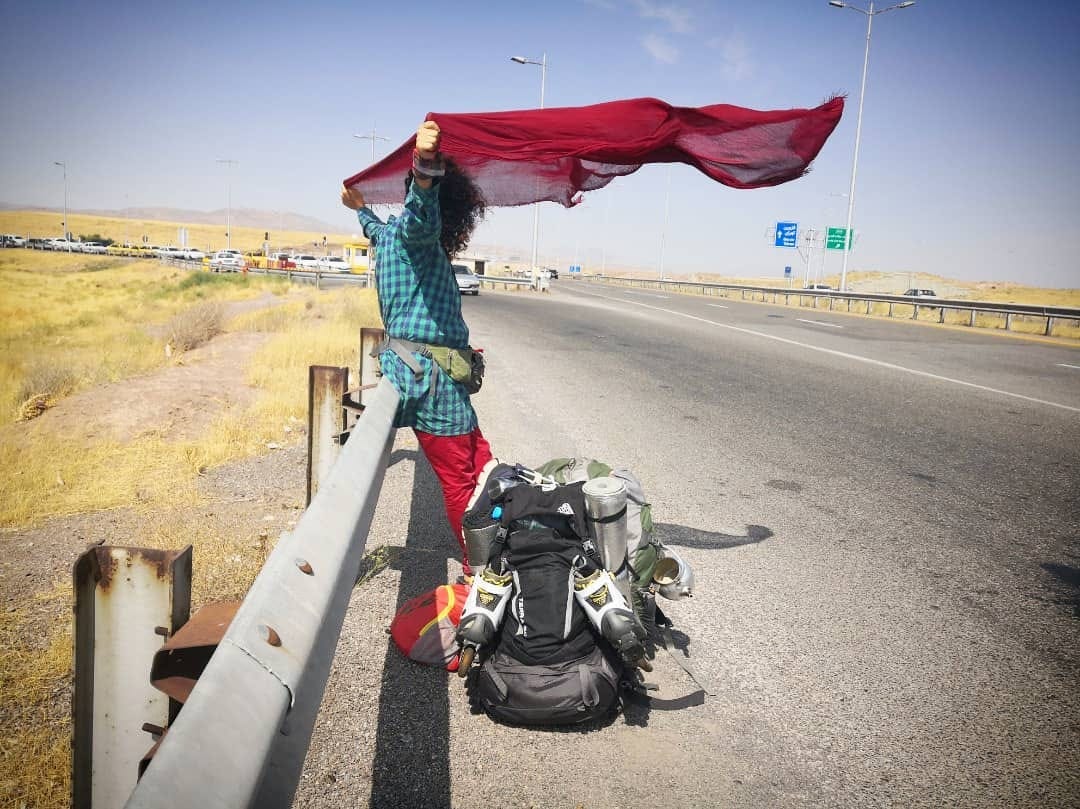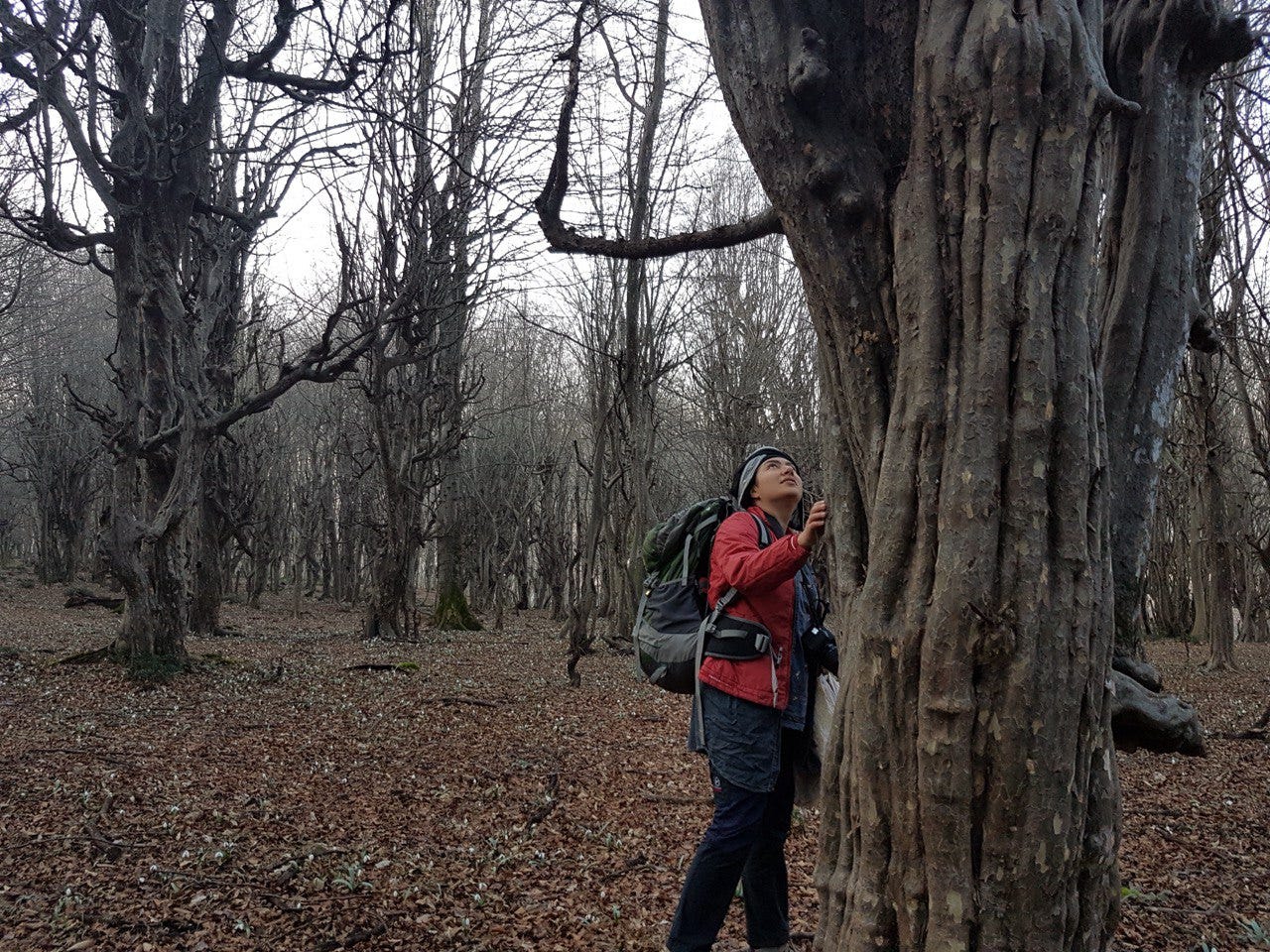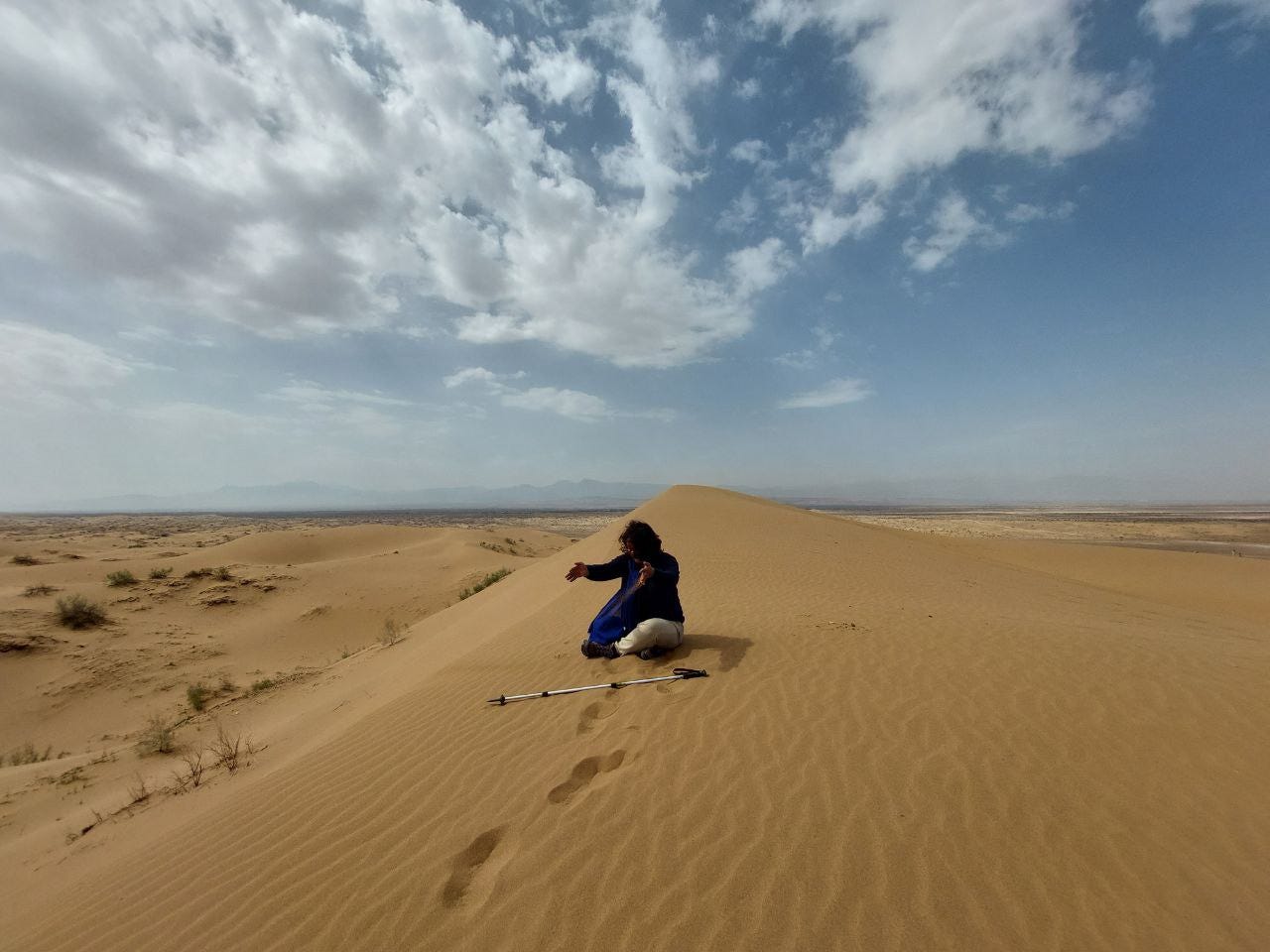Iran’s Women Hitchhikers: A Quiet Revolution on the Road
Defying Tradition, Carving Freedom Step by Step
Water wears down stone—drop by drop, unyielding. Forough stands on a sun-scorched road beyond the city, a cardboard sign with her destination scrawled on it flapping against her backpack. Her thumb is raised, her heart racing. “The first time,” she says, “fear gripped me tight—but every ride tore a piece of it apart.” In Iran, where women’s steps are tracked, hitchhiking isn't just a ride, it’s a quiet snap of the chains.
Iran sprawls across 1.6 million square kilometers, a vast tapestry of cultures and ethnics stitched together at the crossroads of history and modernity—the second-largest nation in the Middle East and the 17th in the world. Its diversity isn’t uniform: in the pulsing hearts of Tehran and Isfahan, women stride freer, their voices louder, their lives bolder.
But in the borderlands and small towns—from Sistan’s deserts to Baluchestan’s (the province in the southeast of Iran, bordering Afghanistan and Pakistan) edges—tradition and custom still bind them tight, layering restrictions atop laws that already curb their steps. It’s not just the state’s rules that cage them; it’s the weight of unwritten codes, etched deep in some communities.
Yet, in recent years, Iranian women have pushed back—not only through protests, prison, and public cries, but through the quiet power of living differently, dismantling boundaries one choice at a time.
Thumbing Her Way to Freedom
Forough was 24 when she first stuck out her thumb, trembling beside a friend on a road beyond Tabriz (a city in the East Azerbaijan province of northwestern Iran) in 2015. No bus could take her to Mount Sabalan (located in Ardabil province, at 4,794 meters), so she took a chance—hitchhiking, a word she’d barely known, sparked by a stranger’s tip on Instagram. ‘I was terrified,’ she admits, “but after 15 minutes with a driver, fear turned to thrill.” Soon, she shed the safety net: alone, bank cards emptied by choice, forcing herself to hitchhike and resist the urge to flee back to the comfort of buses or taxis.
She traded handmade bracelets for rides from Shiraz’s poets’ lanes to Bandar Abbas’s salty shores. Drunk drivers, dark walks to gas stations—she faced them all, her voice firm: “I had to prove I could.” Each mile cracked open a world she’d been told to shrink from, a freedom won not with shouts, but with steps.
Forough’s rides didn't just carry her across Iran’s sprawling provinces- they shifted something deeper. “Hitchhiking gave me a confidence I never knew,” she says, a spark in her voice. For a relentless year and three months, she hitched through every province of Iran, then crossed into Armenia and Turkey on just $500, meeting truck drivers who defied her stereotypes and villagers who opened their homes. “In the early years,” she recalls, “people weren’t familiar with hitchhiking—seeing a lone woman by the road stunned them.”
She’d scribble her destination on cardboard, pinning it to her backpack or holding it as she walked. “They’d stop, curious, asking why I was there—support and amazement came first.” But as more women hitched, judgment crept in: “Some said we had no home, no family—why else would we roam?” “Yes, they voiced it,” she adds. “Don’t you have a family? At your age, you should have a husband and kids—why are you here?”
In Sistan and Baluchestan, where deserts meet the Persian Gulf’s shores in a sweep of raw, stunning beauty, she found warmth: a village chief insisted she stay, piling plates with food, while women peered from doorways—girls allowed out once a year, bound to marry and mother, their lives a stark frame. “They looked at me,” Forough recalls, “like I was proof life could stretch beyond their walls.”
She’s not alone: more Iranian women are hitchhiking now, their numbers swelling over the years. On Instagram, they ping her for tips—how to stand, where to go. In small towns, her tent and backpack stir whispers, then wonder. “Women there saw me and thought, maybe I can too.”
A Quiet Defiance: Rewriting Womanhood
“The roots of change run deep,” says Shiva Nazarahari, a women and human rights activist who received the 2011 Theodor Haecker Prize. “Education, the internet, and social media—they’ve opened worlds once closed to Iranian women.” She traces a shift: where isolation once stifled choice, new lifestyles now bloom, particularly in cities, as traditions fade. But society’s gaze is a paradox. “Iran’s conservative, religious roots slow change,” she says, “yet women’s daily defiance forces a reckoning.”
A new generation, especially in urban centers, has reshaped everything—dress, relationships, jobs, lives—imposing their choices on families, society, even the state, through what Nazarahari calls a transformative, non-political disobedience. Still, resistance lingers in traditional corners, a reminder of the gradual, complex battle to redefine womanhood.
She sees true change in these quiet acts: “Real, lasting shifts don’t come from grand upheavals but from the slow, daily grind of lived resistance—what theorists call ‘everyday disobedience” or ‘micro-resistances.’” These, she argues, outstrip even progressive laws, pointing to Afghanistan’s 20-year experiment—where legal freedoms collapsed without a changed mindset. ‘Feminists like bell hooks and Judith Butler teach us this,’ she adds.
‘Revolution isn’t just political—it’s a deep, mental, cultural rebirth, carved in the body, the language, the everyday.’
And the cost? We see a woman hitchhiking but not the unseen battles—fears faced daily, traumas endured, rejection by family, and legal voids that leave her exposed. These women pay a price we rarely witness’."
Forough still hitches when she can, now from France, though cars rarely stop. Back in Iran, the woads hum with new thumbs- women carving paths where none were offered, each ride a defiance, each step a claim. It’s not loud, not fast, but it’s there: a current wearing down the old stones of tradition and control. Like water, they bend around obstacles, finding cracks, making ways – paying a price, but never stopping.





